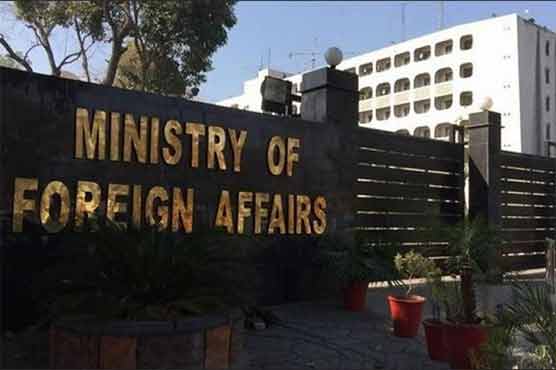Pakistan urges int'l community to play role after Babri Masjid verdict

The rising tide of extremist ideology in India is a threat to regional peace and stability: FO
ISLAMABAD (Dunya News) – Pakistan has expressed deep concern over the decision of the Indian Supreme Court regarding the historic Babri Masjid.
According to a statement issued by Foreign Office, the decision has, once again, failed to uphold the demands of justice. As the United Nations recently noted that Indian Supreme Court’s response to human rights petitions in the context of Indian Occupied Jammu & Kashmir was slow, this decision points out that when it acts, it is unable to protect the interests of India’s minorities.
It further said this decision has shredded the veneer of so-called secularism of India by making clear that minorities in India are no longer safe; they have to fear for their beliefs and for their places of worship. A process of re-writing history is underway in India in order to recast it in the image of a ‘Hindu Rashtra’ in pursuance of the Hindutva ideology. It is also fast affecting India’s major institutions.
Foreign Office said the rising tide of extremist ideology in India, based on the belief of Hindu supremacy and exclusion, is a threat to regional peace and stability.
The Indian government should ensure the protection of Muslims, their lives, rights and properties and avoid being yet again a silent spectator of Muslims becoming the victims of Hindu extremists and zealots.
The international community, the United Nations and other human rights organizations in particular should play their role by restraining India from its pursuit of an extremist ideology and to ensure equal rights and protection of the minorities in India.
India’s Supreme Court (SC) has on Saturday announced verdict in favor of Ram Mandir and directed to allot a separate land of five-acre to Muslims for mosque while pronouncing its judgment in the Ayodhya Ram Janmabhoomi-Babri Masjid title suit.
The verdict was announced by an SC constitution bench headed by Chief Justice Ranjan Gogoi. As per the ruling, a temple will be constructed on the disputed site in Ayodhya while Muslims will be given an alternate land within the city. The verdict was unanimous.
The decision has sent shudders through many in the 200-million-strong Muslim minority who fear that the Bharatiya Janata Party (BJP) is bent on turning India into a purely Hindu nation.
The ruling over the holy site had been contested for centuries by Hindus and Muslims, which in 1992 sparked some of the deadliest sectarian violence since independence.


